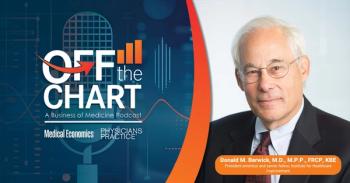
The Physician Guide to Narrow Networks
Healthcare will be revolutionized when physicians build and manage narrow high-performing networks and tie them together under a common platform.
In the "good vs. evil" model of the mainstream media and inside the Washington, D.C., beltway crowd, narrow provider networks have fallen into the "evil" category.
Someone has to take the blame for higher costs and deductibles, and insurers forced to accommodate required coverage mandates and new regulations under the Affordable Care Act are the culprits du jour. Make no mistake, insurers walked right into this one. They were naïve and never expected that their reward for supporting Obamacare would be a bag full of hungry weasels instead of cash.
So, the public is once again being stirred up by a steady drumbeat about the lack of choice and loss of quality care to divert their suspicion, anger, and dissatisfaction brought upon by their experience with Obamacare so far.
This is not the first time the entrenched establishment has employed these scare tactics. In the 1990s, the early group and staff model HMOs (narrow networks) provided exceptional care and flattened the cost curve by coordinating care at the primary-care level, and creating cost competition in local markets for high-cost services.
Physician-managed HMOs were successful because physicians managed patients' healthcare, including fiscal responsibility, for costs. It was not long before commercial insurers created their bastardized version of managed care based on restricted networks, managing physicians' behavior. The inevitable happened with institutionally managed care and the media did the rest.
It does not take a lot of analysis to recognize that a network of the most efficient and effective providers can deliver the needed quality outcomes and patient-satisfaction levels at lower cost than broad networks.
Obamacare's fatal flaw is that it spreads costs instead of reducing them. No insurance reform will work until and unless we get serious about making healthcare less costly.
There are two camps: cut the rampant waste by right-sizing the utilization of services through common-sense policies and incentives in a free market, or, single-payer government price control and regulation.
America's economy dominates the world because consumers decide in a free and open market. Our healthcare system is broken, in large part, because it is opaque and closed.
What do narrow networks have to do with this?
Imagine physicians forming high-performing advanced primary-care practices supported by common information, advanced analytics, training, and techniques in population care-management systems, and patient motivational science and techniques.
Imagine linking the best-transformed primary-care practices, selecting amongst the best specialists, institutions, and vendors for their referrals, operating upon a common platform of transparent information on patient satisfaction, clinical outcomes, and lowest spend, in a partnership to produce the most satisfied, health-optimized patients at the lowest reasonable cost.
Imagine the interest of insurers and employers in networks that deliver high-quality services and outcomes at significant savings. Imagine the financial opportunities to physicians as managers of patient populations rather than piece workers for healthcare services that are rapidly being commoditized.
It takes no imagination to see how such a system would turn the institutional status quo on its head by driving quality and price competition. The losers (providers of over-utilized high-cost services among them) in a potentially dramatic contraction of one-sixth of the U.S. economy are not going to go down easily.
Physicians will have to compete to be part of such a network, even one that is owned and operated by physicians, but the return could be very profitable. Reducing the cost of care and sharing the savings with payer partners is easy math where everyone, especially the patient, wins.
Now, look into your heart. Are you ready to aspire to the transformation of healthcare or will you sell out and become an employee? Are you ready to soar with the independent eagles or peck at the pavement like a pigeon working the rooftop of the hospital?
If you are a good doctor, capable of changing the way you have previously thought about the health care system, what is there really to be afraid of? What choice do you really have? Embrace the opportunities that change is bringing.
Physicians can, and must, change the healthcare system and take ownership of their destiny. It means thinking out of the box, thinking entrepreneurially, putting your patient in the center of everything you do.
There is no independence, or future, for those who go it alone. Working together, and competing together, will fix the healthcare system by driving improvements in care and in patient satisfaction at dramatically lower cost.
Newsletter
Optimize your practice with the Physicians Practice newsletter, offering management pearls, leadership tips, and business strategies tailored for practice administrators and physicians of any specialty.









